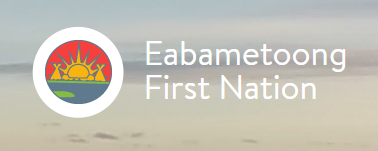TORONTO — In a significant decision related to Indigenous rights, Ontario's Divisional Court has set aside a permit for mineral exploration in the traditional territory of the Eabametoong First Nation.
A panel of three judges accepted the community's argument that the Ministry of Northern Development and Mines failed to properly carry out the Crown's constitutional duty to consult.
In March 2016, the ministry granted an exploration permit to Landore Resources, authorizing drilling for gold in an area about 40 kilometres west of the Fort Hope (Eabametoong) reserve, about 400 kilometres north of Thunder Bay.
Eabametoong's leadership said the permit was issued despite concerns raised by community members about impacts on the environment and on their aboriginal and treaty rights
Chief Elizabeth Atlookan said at the time "there are burial grounds, birthplaces, cabins used by families, sensitive spawning areas and rich hunting grounds through the area staked."
The First Nation alleged that the consultation process was cut short while substantive issues were still under discussion.
In a submission to the court, Eabametoong's lawyers said the government and Landore had committed to a course of action about how consultation would occur, then "abruptly changed course without explaining why...and without giving Eabametoong an opportunity to respond."
They said the company pressed the ministry for a permit because it was entering negotiations with a senior mining company, and argued this "violates case law that has found that commercial timelines cannot dictate the consultative process."
The ministry's lawyers maintained that since consultation had occurred over two-and-a half years, Eabametoong had had sufficient opportunity to express its concerns.
It also said the permit took the concerns of affected Eabametoong families into account.
Landore, in its submission, further argued that although Eabametoong requested a second community meeting and a signed Memorandum of Understanding (MOU) with the company, "the law on consultation is clear that Eabametoong's interests do not enable it to require a specific process or to require that an agreement be reached."
The court agreed with that position, and agreed with the ministry and Landore that the duty to consult in this instance is "at the lower end of the spectrum...because the lands in question are surrendered lands that the government has the right to 'take up' for mining."
However, it added in its reasons for decision that what is required by law "is that whatever process the parties engage in is one that is genuinely aimed at listening to each other's concerns and being prepared to address those concerns."
It noted that Eabametoong and Landore had agreed earlier in the process that an MOU should be negotiated between the two before a permit was issued, that the ministry had been advised of this, and that the ministry had not indicated this was contrary to its policy.
In explaining its decision to order revocation of the permit, the court said consultation "involves more than the use of words or the appearance of listening. It requires real engagement aimed at promoting a profound and important end — reconciliation between the Crown and Indigenous peoples."
It said "there was no real attempt by the Ministry or Landore to listen to Eabametoong's concerns, provide feedback, and discuss ways to meet those concerns (if possible). Instead, the concerns were noted, the expected opportunity for discussion was foreclosed without explanation and the Ministry proceeded in a unilateral way to make its decision."
The court said that while it does "not regard the Ministry's actions as deliberately attempting to do anything untrustworthy" those actions "do not meet the standard required to maintain the honour of the Crown."
The ministry had asked that if the court found the duty to consult had not been met, that the permit not be quashed, but rather than the court order further consultations.
The court rejected the government's request, ordering that the permit be returned to the ministry pending completion of "adequate consultation" with Eabametoong.
The First Nation's lawyer, Robert Janes, said Tuesday that the ruling shows that the government "can't just go through the motions" to meet its duty to consult.
"The problem in this case is that the government and the company effectively made commitments to the First Nation about how they'd consult...and then it turned out that they changed course abruptly, and didn't bother to tell the First Nation the real reasons why. And the court said this just wasn't acceptable."
Janes believes this is the first time an Ontario court has revoked an exploration permit on the basis of inadequate consultation with Indigenous people.
Neither the ministry nor Landore has commented as yet on the ruling.
.
